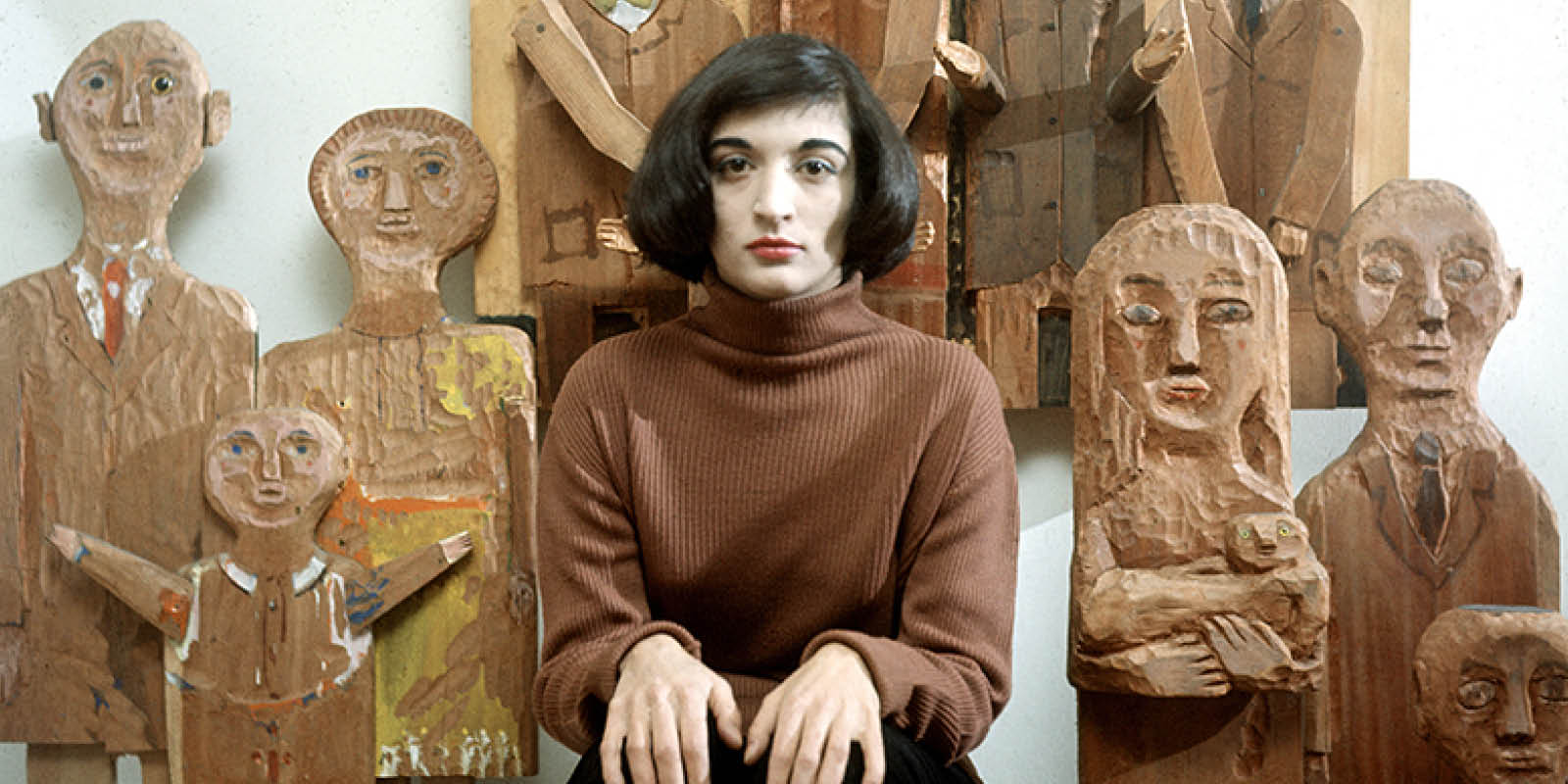The exhibition represents the artist’s first solo show in a New York museum, features 30 works by the artist, and is the first retrospective to include Marisol’s work on paper in conjunction with her sculptures. The exhibition reestablishes Marisol as a major figure in postwar American art, fosters a broader understanding of her work, and positions it within a larger historical context. The various phases of Marisol’s career are explored, beginning with her early carvings, cast metal works, terracottas, large, complex sculptures, and a broad selection of works on paper.
Marisol is best known for her large figural sculptures, which address a variety of subjects pivotally important in the second half of the twentieth century, including women’s social roles, new family dynamics, as well as historical and contemporary figures. Her sculptures, an amalgam of several artistic styles and references, are composed of drawn and painted elements; plaster casts, carved wood and stone, assembled plywood; industrial materials such as neon, Astroturf, and mirrors; and many found objects including clothing, televisions, and baby carriages.
Among the themes explored in the exhibition are Marisol’s many influences (Neo-Dada, Surrealism, American and Latin American folk art, Pre- Columbian art, etc.); her relationship to postwar art and cultural movements (Pop, Minimalism, and Feminism); her experimentation with materials; her extensive use of portraiture; her politically charged sculptures; and her identity as a female artist from an eclectic background.
The exhibition is accompanied by a catalogue, co-published between the Memphis Brooks Museum of Art and Yale University Press. It will be sold at El Museo’s gift shop, La Tienda.
The exhibition is organized by the Memphis Brooks Museum of Art, Memphis, Tennessee. Curated by Marina Pacini.
MARISOL: Sculptures and Works on Paper received lead support from The Jacques and Natasha Gelman Foundation. Support provided by the Circulo de Coleccionistas at El Museo del Barrio: Tony Bechara, Nina Fuentes, and Anonymous. National sponsors include the Andy Warhol Foundation for the Visual Arts, ArtWorks, the National Endowment for the Arts, FedEx, and the Henry Luce Foundation. Additional support provided by Audi, and the Venezuelan American Endowment for the Arts.
